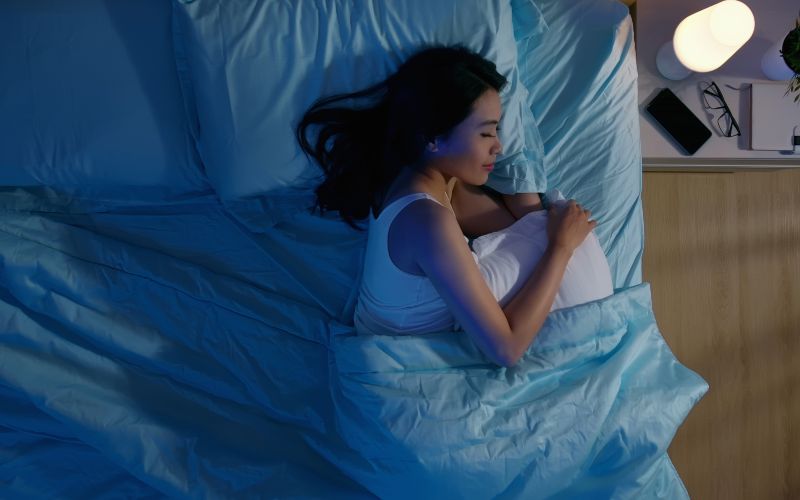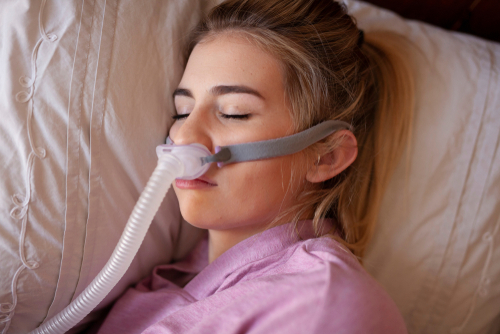Breathe Easy at Night with CPAP Therapy for Sleep Apnea in Windsor, CT
 Struggling with loud snoring, constant fatigue, or waking up gasping for air? You’re not alone. Sleep apnea affects millions of people across the U.S., many of whom remain undiagnosed. Fortunately, CPAP therapy can help restore restful sleep and protect your long-term health.
Struggling with loud snoring, constant fatigue, or waking up gasping for air? You’re not alone. Sleep apnea affects millions of people across the U.S., many of whom remain undiagnosed. Fortunately, CPAP therapy can help restore restful sleep and protect your long-term health.
If you’re searching for a sleep apnea specialist in Windsor, CT, Dr. Roberta Garceau offers quality care and custom treatment solutions. Proudly serving Windsor and nearby areas like Bloomfield, East Granby, South Windsor, and Hartford, Dr. Garceau and her team are here to help you breathe easier and sleep better. Ready to experience restful sleep? Contact our Windsor dental office by calling (860) 254-6189.
Why Dr. Garceau is the Best Choice for Sleep Apnea Care
Dr. Roberta Garceau is a trusted sleep specialist in Windsor, CT with years of experience in helping patients regain control of their sleep and health. Her compassionate approach, advanced training, and personalized care set her apart from others in the field.
She works closely with patients to provide education, guidance, and support throughout the diagnosis and treatment process. Whether you need a home sleep test, help adjusting to CPAP therapy, or alternative solutions such as oral appliance therapy, Dr. Garceau tailors your care to fit your unique needs and comfort level.
What Is CPAP Therapy?
CPAP (Continuous Positive Airway Pressure) therapy is the gold standard for treating obstructive sleep apnea (OSA). It works by delivering a constant stream of air through a mask while you sleep, keeping your airways open and preventing pauses in breathing.
If you’ve been diagnosed with sleep apnea, CPAP can reduce loud snoring, boost your energy levels, improve focus, and protect against serious health complications like high blood pressure, heart disease, and stroke.
Signs You May Need CPAP Therapy
 If you’re unsure whether CPAP therapy is right for you, consider whether you’ve experienced:
If you’re unsure whether CPAP therapy is right for you, consider whether you’ve experienced:
- Loud, chronic snoring
- Morning headaches
- Excessive daytime sleepiness
- Difficulty concentrating or memory issues
- Mood swings or irritability
- Waking up choking or gasping for air
If any of these sound familiar, it may be time to consult our Windsor dentist near you by calling (860) 254-6189 for a comprehensive evaluation.
What to Expect from CPAP Therapy
Your CPAP therapy journey with Dr. Garceau typically includes:
- Diagnosis – Either through a sleep study or home sleep test.
- Fitting – You’ll be fitted with a CPAP mask that’s comfortable and customized to your face.
- Adjustment – Your machine will be set to the optimal pressure level for your needs.
- Follow-Up – Ongoing support to ensure you’re sleeping soundly and adapting well.
With time and support, most patients experience noticeable improvements in just a few days.
Frequently Asked Questions
Is CPAP therapy uncomfortable?
Can CPAP therapy cure sleep apnea?
Can I travel with a CPAP machine?
Are there alternative mask options for CPAP therapy?
Better Sleep Starts with a Consultation at Our Windsor Dental Office!
Don’t let sleep apnea control your life. Whether you’re dealing with loud snoring, daily fatigue, or restless nights, effective help is just around the corner. Dr. Roberta Garceau, trusted sleep specialist in Windsor, CT, offers compassionate, personalized care to help you breathe easier and rest more soundly.
Serving Windsor and nearby communities like South Windsor, Hartford, East Granby, and Bloomfield, Dr. Garceau and her team are here to support you every step of the way. With the right treatment plan, better sleep is within reach. Schedule an appointment with our Windsor sleep specialist today by calling (860) 254-6189.
